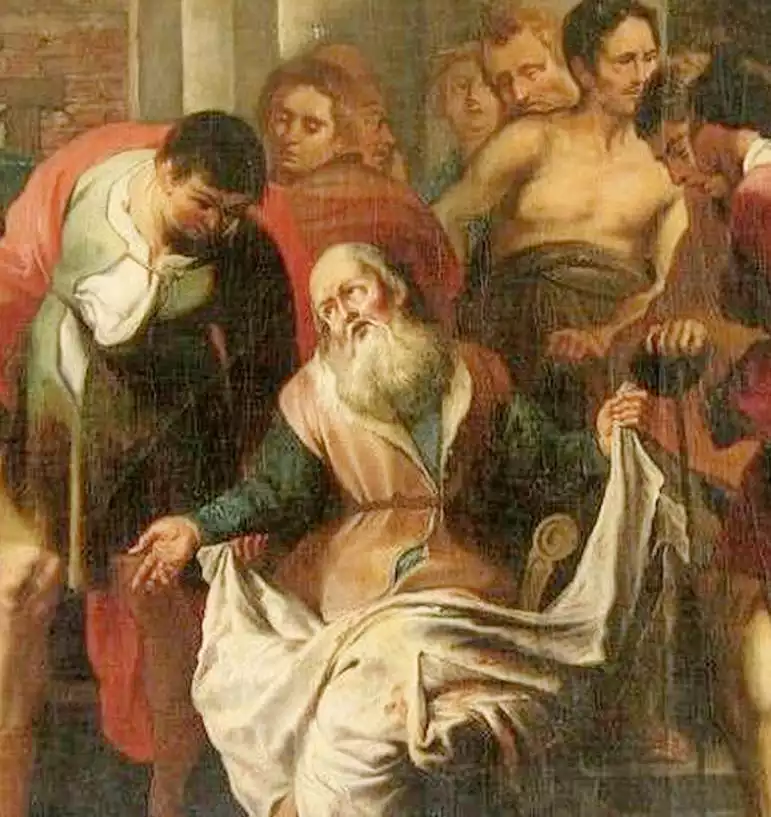
Sold into slavery by his jealous brothers around 1900 BCE, Joseph overcame betrayal and imprisonment to become viceroy of Egypt under the Pharaoh. His rags-to-riches story provides timeless inspiration about persevering through adversity with faith and wisdom. Joseph emerged as a paragon of leadership whose legacy still shines today.
The Incredible Tale of a Slave Who Became the Pharaoh’s Right Hand Man
Joseph was the beloved son of Jacob, born to his favorite wife Rachel in Canaan around 1900 BCE. As one of Jacob’s twelve sons who would go on to lead the twelve tribes of Israel, the young Joseph soon became Jacob’s undisputed favorite. This strong paternal affection resulted in jealousy and resentment from Joseph’s brothers, emotions further stoked when Joseph began having dreams of ruling over his siblings. One day, the brothers plotted to kill Joseph, but instead sold him to passing Midianite merchants bound for Egypt and told their father he had been killed by a wild animal.
In Egypt, Joseph was purchased by Potiphar, the Pharaoh’s captain of the guard. Recognizing Joseph’s merits, Potiphar appointed him as his personal attendant. Unfortunately, Potiphar’s wife then falsely accused Joseph of making advances on her after he refused her propositions. Enraged, Potiphar had Joseph imprisoned. Despite enduring betrayal and injustice, Joseph persevered with strength of spirit and continued exhibiting leadership abilities, soon emerging as assistant to the warden of the prison. His talents were noticed when he successfully interpreted dreams of two royal servants also in prison. This led Joseph to correctly prophesy that the Pharaoh’s impending dream foretold seven prosperous years followed by seven years of severe famine. For his wisdom, the stunned Pharaoh elevated the 30-year-old Joseph to second-in-command of all Egypt to oversee the storage of surplus grain during the plentiful years.
When the prophesied famine struck Israel as well, a desperate Joseph’s brothers traveled to Egypt begging to purchase provisions unaware that the vizier they bowed to was Joseph himself. After witnessing their remorse and assessing their character, Joseph forgave his brothers and facilitated their safe passage and protection in Egypt. The entire Israelite house of Jacob then journeyed and resettled in Egypt under Joseph’s authority, where they lived and prospered for generations to come.
Joseph had risen from slave imprisoned on false charges to Pharaonic viceroy of Egypt, overcoming adversity through faith in divine providence. His legacy would be one of wisdom, leadership and foresight in averting mass starvation while continuing to extend mercy and forgiveness despite the grievous injustices he endured. Over two millennia later, Joseph’s epic journey from rags to riches still provides inspiration about the resilience of the human spirit.
In conclusion, Joseph’s odyssey still stands as an timeless testament to personal growth in the face of adversity, and to the power of faith, wisdom and mercy to overcome life’s injustices while bettering the lives of others for generations.
References
Matthews, V. H., & Benjamin, D. C. (2005). Old Testament Parallels: Laws and Stories from the Ancient Near East Fully Revised and Expanded. Paulist Press.
Perdue, L. G. (2000). Joseph: Progenitor of a Nation. In Families in Ancient Israel (pp. 207-225). Westminster John Knox Press.
Redford, D. B. (1970). A Study of the Biblical Story of Joseph: Gen. 37-50. Brill.
